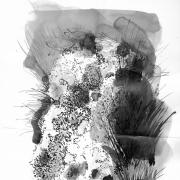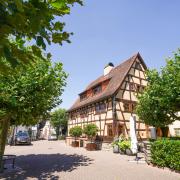Gill Heavens salutes a long-standing North Devon club whose members love to explore the depths of our offshore waters

Many of us love the sea and some of us live close enough to appreciate it daily. Others swim, surf or sail whenever possible. But there are a few bold folk who immerse themselves even further. They go beneath the waves.
The Ilfracombe and North Devon Sub Aqua Club are a group of enthusiasts who do just that. Affiliated to the British Sub Aqua Club, they explore wrecks and reefs along the North Devon coast and beyond.
The club was formed in 1960 and, impressively, one of the founding members is still diving. In 1968 they had the honour of working with the renowned naturalist David Bellamy, undertaking a study of seaweed, named Operation Kelp.

Over the years they have assisted in sea searches for missing people, helped the marine charity Coastwise, taken part in documentaries and even retrieved golf balls from a lake at the local links!
The group’s base is a clubhouse just a pebble’s throw from Ilfracombe harbour. It is one of only two clubs in the country lucky enough to enjoy this luxury and it plays an integral role in the life of its members.
Not only is it a venue for meetings, lectures and dive theory training, it also holds regular social events. Visitors to the area are welcome to use the facilities, fill cylinders or patronise the bar.

In 1997 the club was awarded a National Lottery grant from the Sports Council which enabled the purchase of their boat Neptune. The fixed-hull vessel holds up to 12 passengers, with two crew, and is used primarily for local trips to Clovelly, Lundy Island, and up the channel to Lynmouth.
The club also owns a RIB - a rigid hulled inflatable boat. This smaller boat, Combe Diver, accommodates eight passengers and two crew and is used for inshore diving. Using a trailer, the RIB can be towed on away days for more exploration.
The club visits a variety of sites throughout the season, which runs from March to October. These trips are both close to home and further afield, including The Scillies, Cornwall and South Devon. East of Lundy is a No Take Zone, which protects its unique environment.

Elsewhere, however, you can apply for a local licence to harvest scallops and other shellfish.
Quite rightly there are strict rules governing the diving of wrecks and a special licence must be obtained for sea salvage. ILFSAC itself owns the remains of three boats including the 18th century HMS Weasel.
The clubs has a small collection of artefacts including a telegraph from the dredger Stan Woolaway and a toilet from the paddle steamer Iona II.

There is, of course, another kind of treasure concealed below the breakers, a front row seat in the theatre of our native ocean dwellers. And what a show this is! The wonderful performers include dolphins, sea urchins, crabs and numerous varieties of fish. Diving off the North Devon coast poses its own unique challenges.
The Severn Estuary, which borders this coast, has the second highest tidal range in the world. Diving is greatly affected by not only currents but the movement of the tide and even wind speed and direction. All of these must be taken into account before and during dives.
Before you can rummage in wrecks and cavort with cuttlefish you must pass various assessments. First there are theory exams and swimming pool dives. Next you advance to quarry diving, where you are more likely to come across an abandoned shopping trolley than the flagship of the Armada.

Not glamorous, but the controlled environment ensures safe progression to the goal of Ocean Diver, qualified to explore the joys of the deep. After this initial qualification, the club actively encourages members to continue their training and be involved in the instruction of others.
Club members come from all walks of life, aged between 16 and “I would rather not say” and are both local and seasonal visitors. Whether you are an experienced diver or a curious first timer, visit ilfracombediveclub.com for more information.
Before long it could be you, underwater, watching the gannets dive and the seals play, or perhaps discovering that elusive gold doubloon. Whichever you think is more precious.

Wildlife
The basking shark is the second largest shark on the planet, pipped to top spot by the whale shark. What is incredible is that it maintains its vast 8m long body by feeding on miniscule plankton!
Brittlestars are closely related to starfish, using their five elegant arms to travel across the sea floor. They are the vacuum cleaners of the deep, scavenging and clearing up leftovers. And yes they are indeed brittle, losing limbs easily, which magically re-grow.

There are some wonderfully monikered jellyfish in our waters including Sea Nettle, Lion’s Mane, By-the-Wind Sailor and the Mauve Stinger, all with varying stinging capacity. Best viewed from a distance!
The blenny is a curious fish, with more than one trick up its gills. It has adapted to be able to survive for several hours out of water and can also change its colour to match its surroundings. A tough beak enables it to feast on barnacles and if necessary, give its captor a sharp nip.
Other Sub Aqua Clubs
There are many Sub Aqua Clubs in Devon, from Appledore to Torbay, including:
- The long established Exeter BSAC which was formed in 1952 and has regular Try Dives for those wanting a taster session - exeterbsac.org.
- Totnes Sub Aqua Club is another well-established club with over 100 members - totnes-bsac.co.uk.
- Even land-locked Tiverton has a club which caters for both sub aqua and snorkelling - tivertondivingclub.com.
- As would warrant this maritime city, there are several clubs in Plymouth including the University of Plymouth and the Aquanauts.
- Teign Diving Centre is one of the larger clubs with bases in both Teignmouth and Plymouth - teigndivingcentre.co.uk
For more information take a look at the British Sub Aqua Club website at bsac.com
________________



























